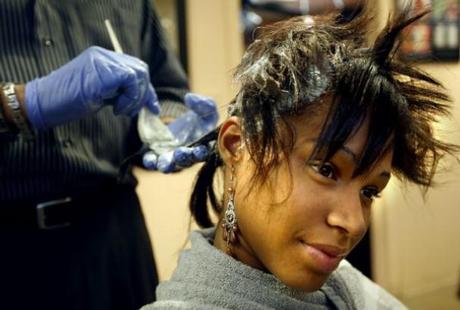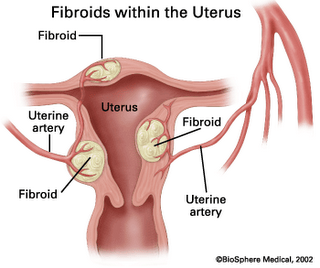
Well, according to a study done by the Slone Epidemiology Center in Boston, MA, the answer is YES.
In a study conducted on 300 women ages 17-77 regarding the use of relaxers prior to the age of 13, relaxers were likely to cause uterine leimyomata or fibroids in women. In addition, the results determined that blacks were more likely to use these types of chemically laden products at a very early age and as a result, may have also reached puberty earlier than any other racial or ethnic group.
 The results are alarming, as it seems that black women have always been more susceptible to developing uterine fibroids and reproductive issues than any other group of women on the planet. Then again, as black women we are also the only race of women who sometimes from the tender ages of 5-8 and throughout a lifetime, we laden our crown with a product that is filled with dangerous, toxic chemicals.
The breakdown from Blackdoctor.org:
The results are alarming, as it seems that black women have always been more susceptible to developing uterine fibroids and reproductive issues than any other group of women on the planet. Then again, as black women we are also the only race of women who sometimes from the tender ages of 5-8 and throughout a lifetime, we laden our crown with a product that is filled with dangerous, toxic chemicals.
The breakdown from Blackdoctor.org:
"A new study in the American Journal of Epidemiology has linked hair relaxers to uterine fibroids, as well as early puberty in young girls.
Scientists followed more than 23,000 pre-menopausal Black American women from 1997 to 2009 and found that the two- to three-times higher rate of fibroids among black women may be linked to chemical exposure through scalp lesions and burns resulting from relaxers.
Women who got their first menstrual period before the age of 10 were also more likely to have uterine fibroids, and early menstruation may result from hair products black girls are using, according to a separate study published in the Annals of Epidemiology last summer.
Three hundred African American, African Caribbean, Hispanic, and White women in New York City were studied. The women’s first menstrual period varied anywhere from age 8 to age 19, but African Americans, who were more likely to use straightening and relaxers hair oils, also reached menarche earlier than other racial/ethnic groups.
While so far, there is only an association rather than a cause and effect relationship between relaxers, fibroid tumors, and puberty, many experts have been quick to point out that the hair care industry isn’t regulated by the FDA, meaning that there’s no definite way to fully know just how harmful standard Black hair care products really are."As women, we love to look our best but we must be more mindful of what we are putting in and on our bodies. A lot of those same harsh chemicals that we try and stay away from using in our hair can be found in some of our products such as our nail polishes and nail polish removers, body washes and soaps, toothpaste and mouthwashes, laundry detergent and more.
To view the study abstract, click HERE. For more details on the study results, click HERE.

